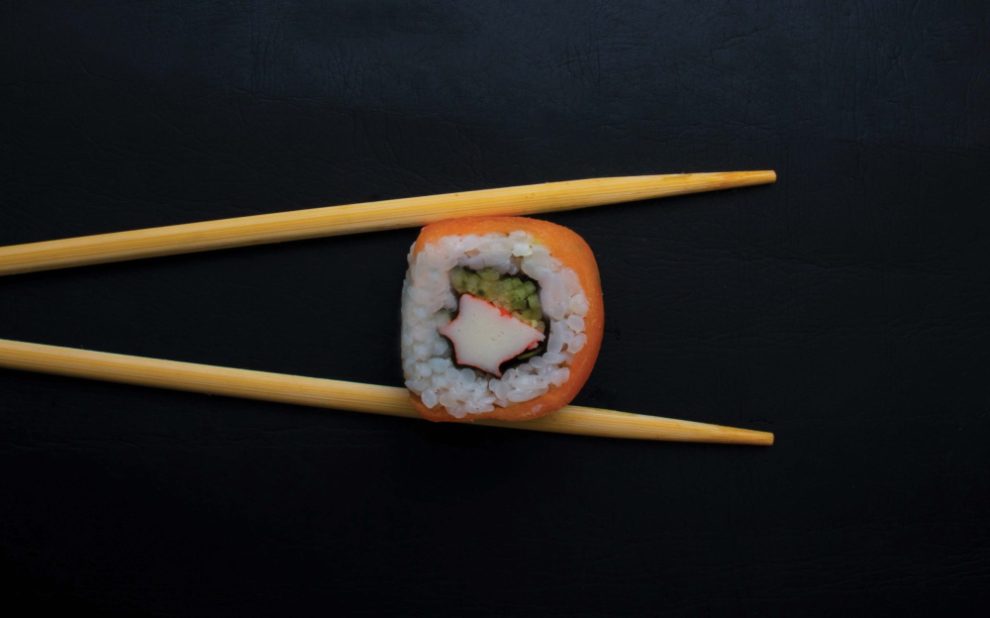I was probably in my mid-20s when I first discovered the joy of sushi. My favorite morsel quickly became unagi, no doubt overcoming strong inhibitions at the mere idea of eating—could it be?—eel.
Unbeknownst at the time, I was a tiny part of a vast transformation in American dining. Beginning in the 1980s, sushi evolved from a pricey culinary obscurity into a suppertime plan B that U.S. consumers now grab on the way out of their favorite supermarkets. Over the last decade alone, the sushi market has doubled into a $27 billion industry.
What’s good news for sushi restaurants and sushi lovers, however, is not such good news for creation. The World Wildlife Fund (WWF) reports that a sushi staple, Pacific bluefin tuna, after enduring decades of overfishing and rising demand, has been reduced to just 2.6 percent of its historical population level. And another staple, wild Pacific salmon, is under increasing threat, according to WWF, because of habitat destruction, overharvesting, and mining. My beloved unagi has problems of its own. Sushi-driven demand has placed Japanese and European wild eel on the “red list” of endangered species at the International Union for Conservation of Nature.
And sushi consumption is not only hard on fisheries; its emphasis on freshness means that vast distances must be conquered to bring that piece of fresh fish to your table. Overnight air freight with a spectacular carbon footprint remains the only option for many restauranteurs.
Other ingredients can be just as hard on creation. Avocados have exploded in popularity in recent years, partly thanks to their use in sushi rolls. But they are a particularly thirsty crop—it doesn’t help that most avocados marketed in the United States are grown in California, where the climate has become increasingly arid. Most of the rice, another water-intensive crop, used for sushi is also grown in California, where drought conditions persist.
So in the interest of care of creation, should sushi be banned from my dinner table? Although it would surely help to make a sushi platter a far less frequent dinner guest, other options are emerging. Sushi chefs are revising menus with alt-sushi that promotes the overall sustainability of sushi culture, while websites that swap strategies for “sustainable sushi” proliferate. That may mean a fix as simple as replacing Pacific salmon with its farmed Alaskan or Atlantic cousin or finding local sustainable sources that mimic the taste and texture of sushi staples. Some vegan entrepreneurs are even experimenting with plant-based sushi.
The church consistently reminds us, most recently in Pope Francis’ 2015 encyclical Laudato Si’ (On Care for Our Common Home), of our duty to care for the oceans. The church is a firm supporter of multilateral institutions that assume that burden. But from the sushi consumer to the U.N. fisheries bureaucrat, we all must share the responsibility to protect the vibrant expression of creation that the oceans and the species dwelling within them represent.
In 1974 only about 10 percent of the world’s fish resource was harvested at biologically unsustainable rates. Now, as global fish consumption dramatically increases, the Food and Agriculture Organization of the United Nations reports that about 35 percent of the world’s fish are harvested at unsustainable rates, even as other pressures from garbage and plastic pollution trouble the ocean ecology.
Sushi consumption represents just one accelerating threat to global fisheries. It’s a red flag for conscientious consumers, warning that a rapacious business-as-usual, whether it comes to sushi or more broadly the way we harvest the Earth’s oceans, can’t go on any longer. Unless we are much wiser in our stewardship of the living resources of the global ocean, our nets will come up empty no matter which side we toss them over.
This article also appears in the July 2022 issue of U.S. Catholic (Vol. 87, No. 7, page 42). Click here to subscribe to the magazine.
Image: Unsplash/Mahmoud Fawzy













Add comment